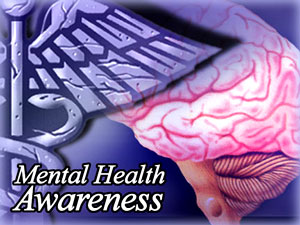
LOS ANGELES (FinalCall.com) – L.A. County Supervisor Yvonne Braithwaite-Burke, city officials and mental health advocates held a press conference at the Kenneth Hahn Hall of Administration July 1 recognizing the first Bebe Moore-Campbell Minority Mental Health Awareness Month.
Congressional legislation has been proposed that would give the month a nationwide designation and promote more services for Blacks and others traditionally underserved when it comes to mental health needs.
“We are committed to the mobilization of community resources to educate, advocate, train and deliver mental health services in a way where faith, customs, values and traditions of a variety of ethnic groups will be taken into consideration to remove all barriers to treatment of mental disorders,” Supervisor Braithwaite-Burke said.
Bebe Moore-Campbell, a celebrated wife, mother, activist and journalist who passed away nearly two years ago due to brain cancer, raised awareness about mental illness in Black communities. She co-founded the National Association of Mental Illness Urban Los Angeles.
Rep. Albert Wynn (D-Md.) authored a mental health month bill to raise awareness about the needs and disparities among minorities and to encourage improved training to ensure proper diagnosis of Black and minority patients. The bill also encourages expansion of mental health care in underserved communities in every state. The House passed the Wynn bill in May and it has gone to the Senate.
“To address these problems, obviously we need more resources and access to health insurance. But critically we also need to improve public awareness and encourage minority citizens to confront the illness instead of denying it or being ashamed of its existence in their families and communities,” Rep. Wynn said during a recent hearing on the bill.
A lack of culturally competent mental health treatments contribute to the mental health disparities suffered by Blacks, some psychologists argue.
Culturally competent treatment considers a person’s culture, values and beliefs before making decisions about diagnoses and treatment. It tailors treatment to fit a patient’s cultural model, as opposed to a Eurocentric, Western traditional model, explained Dr. Gloria Morrow, a licensed, clinical psychologist in Upland, Calif.
“People are not trained to provide culturally competent care and also because of the managed care system we’re under, people don’t have the time to do that information seeking. It really boils down to (having) people in the mental health care system who provide services to participate or receive cultural competence training,” Dr. Morrow said.
Culturally competent treatment practitioners say the biggest barrier is the lack of finances and resources for agencies to pay for training and materials. Doctors and counselors feel it is easier to go with the established model, rather than spend time and money learning about different cultures to serve them, she said.
“That’s for those mental health facilities and clinics that require billable hours, but a private practitioner has no excuse, because it is our responsibility and obligation to become more culturally aware,” Dr. Morrow argued. Misdiagnosis and inaccurate prescriptions can result if symptoms are not properly identified, she said.
Depression and thought disorders (schizophrenia) are considered two of the top mental health issues for Blacks. Suicide, which psychologists say is a result of poor mental health, is a leading cause of death among Blacks.
According to a 2001 Supplement to the U.S. Surgeon General’s 1999 Mental Health Report, there are striking disparities in mental health care for racial and ethnic minorities.
Dr. David Satcher, then-U.S. Surgeon General, found minorities have less access to mental health services. They are less likely to receive needed mental health services. Minorities in treatment often receive a poorer quality of mental health care; and they are underrepresented in mental health research.
Barriers to treatment include cost, fragmentation of services, lack of availability of services, and societal stigmas about mental illness. Racial and ethnic minorities face the additional barriers of mistrust and fear of treatment, racism and discrimination, and differences in language and communication, the report noted.
Mental health care disparities may also stem from minorities’ historic and present day struggles with racism and discrimination, the report continued. This affects mental health and contributes to a lower economic, social, and political status and combined, these contribute to mental health disparities, it said.
The surgeon general concluded that minorities suffer more because of less care and poorer quality of care, not from more severe or prevalent illnesses, which results in more lost workdays and limits on daily activities. Dr. Satcher’s recommendations for reducing barriers included: 1) gaining a better understanding of the impact of behaviors, stigma, ethnic identity, racism and spirituality on minority populations through an expanded science base; 2) improving access to treatment by bringing mental health services to communities of color and by integrating mental health care and primary health care; and 3) addressing costs and fragmented organization; 4) improving quality of care through evidence-based treatments.
While awaiting these efforts, Dr. Morrow said, Blacks should maintain their cultural healthy “paranoia strategy” of avoiding situations and environments they know will offer racism and racial profiling. “I would hate to have a pessimist view that Black folks are considered crazy. I think we can be Black and healthy in this country, though it is difficult because we are Black. But there are some prescriptions for us that we’ve utilized throughout our history to help us function better–our spiritual life, support system and positive attitudes help us to be grounded and keep on track and focus,” Dr. Morrow said.












